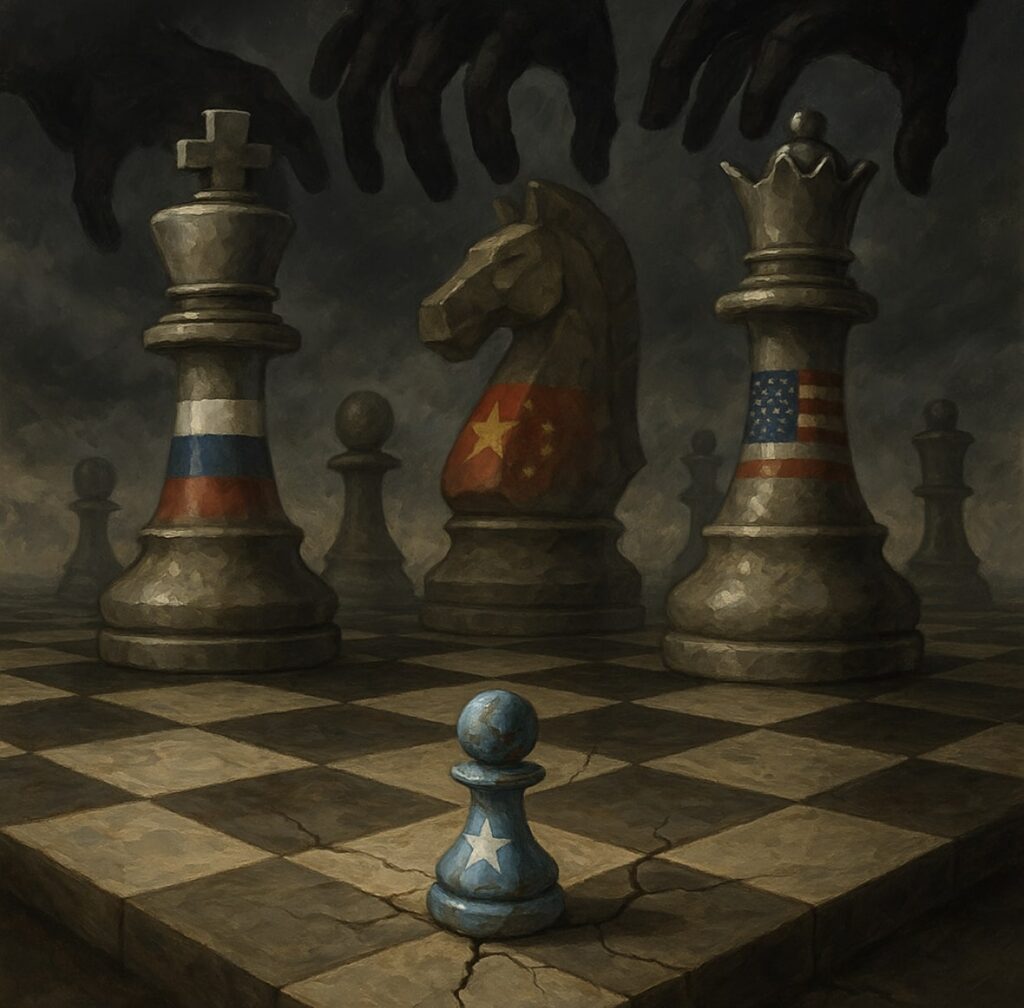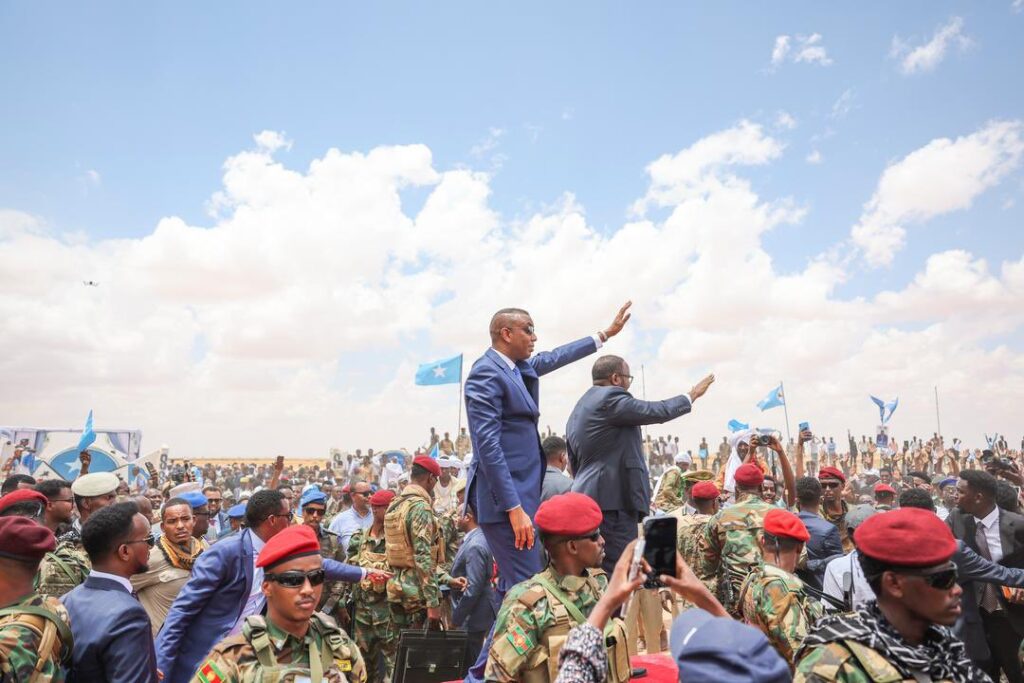As we reflect on the history of nations that have overcome adversity to establish strong governance and institutions, it becomes clear that building a prosperous, well-functioning state is no easy feat. Take the United States as an example: once a group of disparate colonies, it underwent a long, painful process to transform into the world’s most powerful hegemon. This transformation did not happen overnight. It required visionary leaders and committed civil servants who took their responsibilities seriously, laying the foundation for robust institutions that would serve future generations.
What makes countries like the United States and many Western democracies stand out today is the strength and independence of their institutions. These institutions uphold a system of checks and balances, ensuring that power is not concentrated in the hands of a few, while transparency is woven into the fabric of governance. Accountability and oversight are not optional; they are core pillars that sustain public trust and drive progress.
The lesson here is clear: for any country to develop and build better institutions, its leaders and citizens must be committed to doing the job properly. The people entrusted with leadership positions need to be both serious about their duties and qualified to carry them out effectively. Without this level of responsibility and dedication, institutional weakness and dysfunction will persist.
Examples of Good Leadership
Throughout history, many nations have benefited from the leadership of individuals who not only had vision but also understood the importance of building strong institutions that serve the people.
- Nelson Mandela (South Africa) Mandela’s leadership is a powerful example of visionary governance. After the end of apartheid, he became the first black president of South Africa in 1994, using his influence to unite a deeply divided country. Mandela promoted reconciliation, peace, and democracy, and his leadership laid the foundation for stable governance in South Africa. His ability to prioritize the nation’s long-term unity over short-term political gains demonstrated the power of visionary leadership.
- Lee Kuan Yew (Singapore) – When Singapore gained independence in 1965, it was a small, resource-poor island with a fragile economy. Under the leadership of Lee Kuan Yew, Singapore underwent rapid modernization, becoming one of the world’s most prosperous nations. Lee’s focus on meritocratic governance, economic development, anti-corruption measures, and building strong, efficient institutions is a testament to what visionary leadership can achieve in a short time.
- Franklin D. Roosevelt (United States) – Roosevelt became president of the United States during one of the country’s darkest periods: the Great Depression. His New Deal programs revitalized the economy, while his leadership during World War II ensured the United States’ role as a global superpower. Roosevelt’s legacy includes creating institutions like Social Security and fostering a sense of national unity that sustained the country through difficult times.
- Rwanda’s Paul Kagame – After the devastating Rwandan genocide in 1994, the country was in ruins. Under Kagame’s leadership, Rwanda has made remarkable strides in governance, economic growth, and social development. Kagame implemented measures to fight corruption, promote national unity, and modernize the economy. Today, Rwanda is considered one of Africa’s fastest-growing economies, a testament to the power of determined and accountable leadership.
These leaders exemplify the impact of vision and strong governance. They understood that building institutions that protect citizens, promote transparency, and ensure accountability is crucial to sustainable national development.
Somalia’s Ongoing Struggle with Governance
Somalia, since the year 2000, has faced enormous challenges in establishing a stable and effective government. The country has endured civil war, terrorist insurgencies, and rampant piracy, all of which have severely weakened the state’s capacity to govern. Yet, despite these external threats, one of Somalia’s biggest obstacles remains internal: the lack of transparent, accountable governance and strong leadership.
While every administration in Somalia since the end of the civil war has made bold promises to the people, the reality has often been a cycle of failed leadership. Politicians leave office with little to show for their tenure—aside from personal financial gain. The foundations of the government have not been meaningfully strengthened, and the lack of accountability within leadership has stunted the country’s development.
Institutions that should be acting as a check on power, ensuring that the government serves the public interest, are either too weak or too compromised to fulfill their roles. Transparency is sorely lacking, and without proper checks and balances, corruption has flourished. This problem is compounded by the widespread practice of hiring unqualified individuals into key positions based on personal relationships or tribal affiliations rather than merit. In Somalia, the normalization of this practice has had disastrous consequences for governance.
The Critical Need for Reform
At the heart of Somalia’s struggles lies a deeper issue: a lack of leadership with the vision, competence, and moral courage to build strong institutions that prioritize the welfare of the people. The country has suffered from leaders who are not genuinely invested in nation-building or improving the lives of citizens. Instead of focusing on long-term goals—such as creating a transparent government, fighting corruption, and fostering national unity—many leaders have treated public office as a means for personal enrichment.
Corruption, in particular, stands as one of the most significant barriers to Somalia’s progress. It erodes public trust in the government, siphons away resources that could be used for development, and perpetuates a culture of impunity. Without addressing corruption and holding officials accountable, Somalia’s institutions will continue to falter, and the country will remain trapped in a cycle of underdevelopment.
Conclusion: A Call for Visionary Leadership
If Somalia is to break free from its governance challenges and build a better future, it needs visionary leaders who are committed to the cause of national development. These leaders must prioritize strengthening institutions, fostering transparency, and ensuring that power is checked through accountable mechanisms. Moreover, they must lead by example, demonstrating that serving in government is not a personal entitlement but a responsibility to the people.
Ultimately, the success of any nation depends not only on the strength of its institutions but also on the quality of its leadership. Somalia’s road to progress will be long and difficult, but with serious and dedicated leaders who can inspire confidence in both the government and its citizens, change is possible. Strong institutions, once established, can endure for generations—empowering the country to rise above its current challenges and lay the groundwork for a stable, prosperous future.
by, Ahmed Jama





